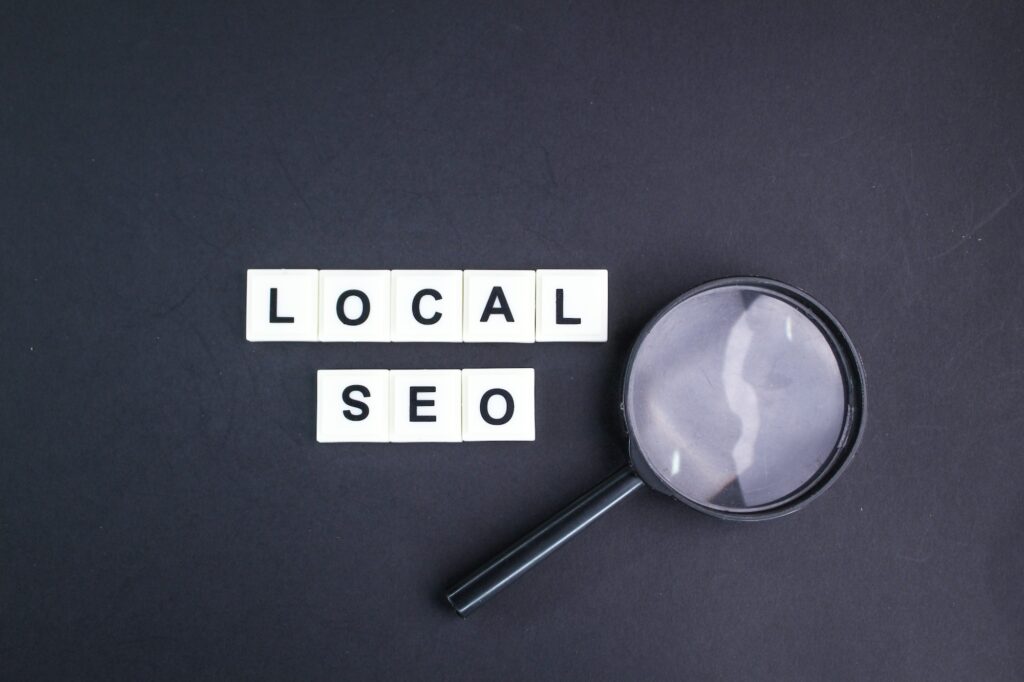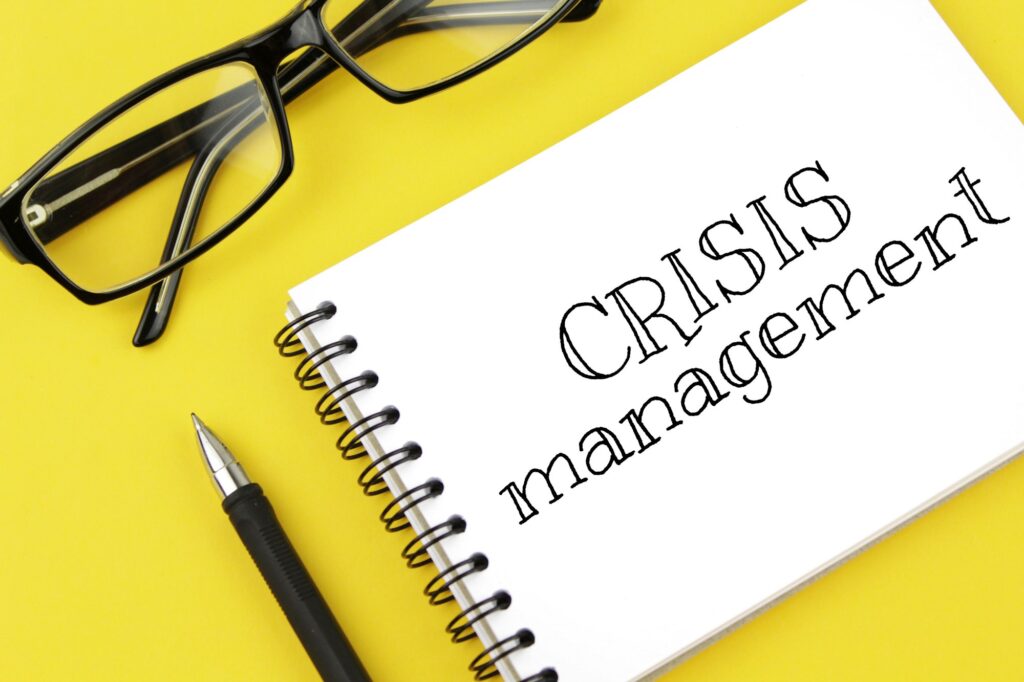In today’s rapidly evolving business landscape, digital marketing has emerged as a cornerstone for success. It’s more than just a buzzword; it’s a strategic approach that businesses of all sizes use to connect with their audience, build brand awareness, and drive growth. But what exactly is digital marketing, and why is it so important?
Digital marketing encompasses all marketing efforts that use an electronic device or the internet. Businesses leverage digital channels such as search engines, social media, email, and websites to connect with current and prospective customers. The importance of digital marketing lies in its ability to reach a broad audience in a cost-effective and measurable way. Unlike traditional methods, digital marketing allows businesses to tailor their messaging to specific demographics, track engagement in real-time, and adjust strategies quickly to optimize performance.

Overview of a Digital Marketing Agency
Navigating the digital landscape can be daunting, which is why partnering with a digital marketing agency can be a game-changer for your business. But what exactly does a digital marketing agency do?
A digital marketing agency offers a wide range of services designed to help businesses achieve their marketing goals. These services typically include search engine optimization (SEO), content marketing, social media management, pay-per-click (PPC) advertising, email marketing, web design and development, and more. Each service plays a crucial role in enhancing a brand’s online presence, driving traffic, and converting leads into customers.
Key roles within a digital marketing team include strategists, who develop tailored marketing plans; content creators, who produce engaging and relevant content; SEO specialists, who optimize web content to rank higher in search results; and data analysts, who track and measure the effectiveness of campaigns.

Boosting Online Visibility with SEO
SEO is a fundamental aspect of digital marketing that can significantly impact your online visibility and traffic. But what makes SEO so important?
SEO, or search engine optimization, involves optimizing your website to rank higher in search engine results pages (SERPs). This is crucial because higher rankings lead to increased visibility and traffic, which can translate into more leads and sales. SEO can be divided into two main categories: on-page and off-page SEO.
On-page SEO focuses on optimizing elements within your website, such as content, meta tags, and images. This includes using relevant keywords, creating high-quality content, and ensuring your website is mobile-friendly and fast-loading. Off-page SEO, on the other hand, involves external factors such as backlinks from other websites, social media signals, and online reviews. Both on-page and off-page SEO are essential for improving your website’s authority and relevance in the eyes of search engines.

Effective Content Marketing Strategies to Engage Your Audience
Content marketing is a powerful tool that can help you attract, engage, and retain your target audience. But what does it entail?
Content marketing involves creating and distributing valuable, relevant, and consistent content to attract and retain a clearly defined audience. This can include blog writing, video marketing, and creating infographics. The goal is to provide your audience with useful information that addresses their needs and challenges, ultimately driving profitable customer action.
Blog writing is an effective way to share insights, tips, and news related to your industry. It helps establish your authority and keeps your audience informed. Video marketing, on the other hand, is a highly engaging form of content that can convey complex information in an easily digestible format. Infographics combine visuals and text to present information clearly and concisely, making them perfect for sharing on social media.

Maximizing Brand Impact with Effective Social Media Management
Today, social media is more than just a platform for sharing updates; it’s a critical component of a comprehensive digital marketing strategy. Effective social media management can help you build brand awareness, engage with your audience, and drive traffic to your website.
The first step in social media management is platform selection. It’s essential to choose the platforms where your target audience is most active. Once you’ve identified these platforms, the next step is content creation. This involves producing engaging and relevant content that resonates with your audience. Finally, engagement strategies are crucial for fostering a community and building relationships with your followers. This can include responding to comments, participating in discussions, and running social media campaigns.

Driving Targeted Traffic with PPC Advertising
PPC advertising is a highly effective way to drive targeted traffic to your website and generate leads. But what exactly is PPC, and how does it work?
PPC, or pay-per-click advertising, is a model of internet marketing where advertisers pay a fee each time one of their ads is clicked. Essentially, it’s a way of buying visits to your site rather than attempting to earn those visits organically. Google Ads and social media ads are common platforms for PPC campaigns.
Retargeting campaigns are a vital component of PPC advertising. They involve targeting users who have previously visited your website but did not complete a desired action, such as making a purchase. By showing these users relevant ads as they browse other sites, you can increase the chances of converting them into customers.

Crafting Successful Email Marketing Campaigns
Email marketing remains one of the most effective channels for reaching your audience and driving conversions. But how do you create a successful email marketing campaign?
The first step is building an email list. This can be done through various methods, such as offering a lead magnet (like a free eBook or discount) in exchange for an email address. Once you have a list, the next step is designing effective emails. This involves crafting compelling subject lines, creating engaging content, and including clear calls to action. Analytics and optimization are crucial for measuring the success of your campaigns and making necessary adjustments. This includes tracking open rates, click-through rates, and conversion rates.

Creating a User-Friendly and High-Converting Website
Your website is often the first point of contact between your business and potential customers. Therefore, having a well-designed, user-friendly website is essential for making a positive impression and driving conversions.
Responsive design is a key aspect of modern web development. This ensures that your website looks and functions well on all devices, from desktops to smartphones. User experience (UX) is another critical factor. This involves creating a site that is easy to navigate, with clear calls to action and a seamless checkout process. Conversion rate optimization (CRO) focuses on maximizing the percentage of visitors who complete a desired action, such as making a purchase or filling out a contact form.

Boosting Local Visibility with Effective SEO Strategies
For small local businesses, local SEO is essential for attracting nearby customers and standing out in local search results. But what does local SEO involve?
Local SEO focuses on optimizing your online presence to attract more business from relevant local searches. This includes optimizing your Google Business Profile, ensuring your business information is accurate and up-to-date, and encouraging customers to leave reviews. Local citations, which are mentions of your business on other websites, also play a crucial role. These can include directory listings, local blogs, and news sites. Reviews and reputation management are essential for building trust with potential customers and improving your local search rankings.

Building a Successful E-Commerce Marketing Strategy
E-commerce marketing involves promoting your online store to drive traffic and increase sales. But how do you create a successful e-commerce marketing strategy?
Product listings optimization is the first step. This involves creating detailed, keyword-rich product descriptions, using high-quality images, and ensuring your listings are easy to navigate. Shopping cart abandonment strategies are crucial for recovering lost sales. This can include sending follow-up emails to remind customers of their abandoned carts or offering incentives to complete their purchase. Sales funnel design focuses on guiding customers through the buying process, from awareness to consideration to decision.

Leveraging Data Analytics for Informed Marketing Decisions
In the current digital landscape, data is king. Analytics and reporting are essential for understanding the performance of your marketing efforts and making informed decisions.
The importance of data cannot be overstated. It allows you to track key metrics, identify trends, and measure the effectiveness of your campaigns. Various tools can be used for data collection and analysis, including Google Analytics, social media analytics platforms, and email marketing software. Interpreting reports involves analyzing the data to gain insights and make data-driven decisions that improve your marketing strategy.

Staying Competitive with Emerging Digital Marketing Trends
Digital marketing is constantly evolving, with new trends and technologies emerging regularly. Staying ahead of these trends is essential for maintaining a competitive edge.
Emerging trends in digital marketing include the increased use of artificial intelligence (AI) and machine learning for personalized marketing, the growing importance of voice search optimization, and the rise of video content as a dominant form of communication. Predicting consumer behavior using data analytics and AI can help businesses tailor their marketing efforts to meet the changing needs and preferences of their audience.

Navigating the Costs and ROI of Digital Marketing Services
Understanding the cost of digital marketing services is crucial for budgeting and ROI considerations. But what factors influence the cost?
Pricing models for digital marketing services can vary. Some agencies charge a flat fee, while others use a performance-based model or charge hourly rates. Budgeting for marketing involves allocating funds to different channels and tactics based on their potential impact on your business. ROI considerations are essential for measuring the success of your marketing efforts and ensuring you’re getting the best value for your investment.

Establishing a Strong Online Brand Presence
Building a strong brand online is essential for standing out in a crowded market and creating a lasting impression on your audience.
Brand identity is the foundation of your brand. It includes your logo, color scheme, typography, and other visual elements that represent your brand. Consistent messaging is crucial for building trust and recognition with your audience. This involves maintaining a consistent tone of voice, values, and messaging across all channels. Community building focuses on creating a loyal following of customers who advocate for your brand and engage with your content.

Enhancing Your Digital Strategy with Mobile Marketing
With the increasing use of smartphones, mobile marketing has become an essential component of a comprehensive digital marketing strategy.
Mobile-friendly websites are crucial for providing a seamless user experience on all devices. This involves optimizing your site for mobile devices, ensuring fast loading times, and using responsive design. SMS campaigns can be highly effective for reaching your audience with timely and relevant messages. Mobile app marketing focuses on promoting your app to increase downloads and engagement.

Mastering Voice Search Optimization for Modern SEO
Voice search is becoming increasingly popular, making voice search optimization a crucial aspect of modern SEO strategies.
Voice search involves using voice commands to search the internet, rather than typing. Optimizing for voice search involves creating content that answers common questions and using natural language keywords. Tools and techniques for voice search optimization include structured data markup, optimizing for local search, and focusing on long-tail keywords.

Effective Video Marketing: Engage and Measure Success
Video marketing is a powerful tool for engaging your audience and conveying your message effectively.
Creating engaging videos involves producing high-quality content that captures your audience’s attention and provides value. This can include tutorials, product demos, customer testimonials, and more. Platforms for video marketing include YouTube, social media, and your own website. Analyzing video performance involves tracking metrics such as views, engagement, and conversions to measure the success of your video marketing efforts.

The Power of Influencer Marketing
Influencer marketing involves partnering with influential individuals in your industry to promote your brand and reach a wider audience.
Finding the right influencers involves identifying individuals who have a strong following and align with your brand values. Collaborations and partnerships can take various forms, including sponsored posts, product reviews, and brand ambassadorships. Measuring the impact of influencer marketing involves tracking metrics such as engagement, reach, and conversions.

Crisis Management in Digital Marketing
In today’s fast-paced digital world, being prepared for a crisis is essential for protecting your brand’s reputation.
Preparing for a crisis involves having a crisis management plan in place, which includes identifying potential risks, assigning roles and responsibilities, and creating a communication strategy. Real-time response is crucial for addressing the crisis quickly and effectively. Post-crisis strategies focus on recovering and rebuilding your brand’s reputation.

Sustainability in Digital Marketing
Sustainability is becoming increasingly important for businesses and consumers alike. Incorporating eco-friendly practices into your digital marketing strategy can have a positive impact on your brand and the environment.
Eco-friendly practices include using sustainable materials for packaging, reducing energy consumption, and promoting sustainability initiatives. Promoting sustainability involves communicating your commitment to eco-friendly practices and encouraging your audience to make sustainable choices. Long-term impact focuses on creating a lasting positive effect on the environment and society.

Collaborating with Traditional Marketing
Integrating digital and traditional marketing can help you maximize your reach and impact.
Case studies showcasing successful integration of digital and traditional marketing can provide valuable insights and inspiration. Maximizing reach and impact involves combining the strengths of both approaches to create a cohesive and effective marketing strategy.

Employee Training and Development
Ongoing education and skill development are essential for keeping up with industry changes and maintaining a competitive edge.
Ongoing education involves providing regular training and development opportunities for your team. Skill development focuses on helping your employees acquire new skills and knowledge. Keeping up with industry changes involves staying informed about the latest trends and technologies in digital marketing.

Community Engagement and Corporate Responsibility
Community engagement and corporate responsibility are crucial for building a positive brand image and making a difference in your community.
Local partnerships involve collaborating with other businesses and organizations in your community to support local initiatives. Charitable initiatives focus on giving back to the community through donations, volunteer work, and other forms of support. Impact on brand perception involves creating a positive image and building trust with your audience.
Frequently Asked Questions (FAQs)
How do I choose the right digital marketing agency?
Consider factors such as the agency’s expertise and experience in your industry, their approach to strategy development and campaign execution, and their pricing structure.
What is the cost of digital marketing services?
The cost of digital marketing services can vary based on the agency’s pricing model, the scope of services, and your budget. It’s important to consider the potential ROI when evaluating costs.
How can digital marketing help my business?
Digital marketing can help your business by increasing online visibility, driving traffic, generating leads, and converting leads into customers. It allows you to reach a broader audience and measure the effectiveness of your campaigns.
What is local SEO, and why is it important?
Local SEO focuses on optimizing your online presence to attract more business from relevant local searches. It’s important for businesses that serve specific geographic areas, as it helps improve visibility in local search results.
How do I measure the success of my digital marketing efforts?
Success can be measured using various metrics, such as website traffic, search engine rankings, social media engagement, email open and click-through rates, and conversion rates. Analytics and reporting tools can help track these metrics and provide insights.
What services does a digital marketing agency offer?
A digital marketing agency offers a wide range of services, including SEO, content marketing, social media management, PPC advertising, email marketing, web design and development, and more.
In the ever-evolving world of digital marketing, partnering with a knowledgeable and experienced agency can make all the difference in achieving your business goals. Whether you’re looking to enhance your online presence, drive traffic, or convert leads into customers, a digital marketing agency in like TK Internet Marketing, can provide the expertise and support you need. By leveraging a comprehensive range of services and staying ahead of emerging trends, we can help you navigate the digital landscape and achieve long-term success. Contact us today to learn more about how we can help your business thrive online.


